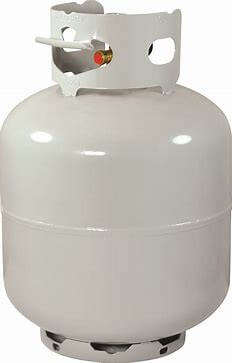The great outdoors is the place to be this summer – and it’s also where portable gas appliances must be used.
Western Australia’s energy safety regulator has issued a reminder that outdoor gas-fuelled equipment, such as barbecues, cookers, heaters and fridges, must only be used in the open air to avoid potentially lethal exposure to carbon monoxide.
“Outdoor use means the open air,” WA Director of Energy Safety Saj Abdoolakhan said. “Portable gas appliances should never be used inside tents, caravans, RVs or other enclosed areas, even if the doors or windows are open.
“Gas equipment is safe to use if it is in good shape, operated correctly and in a proper location, but the consequences can be deadly if carbon monoxide builds up in an area without enough ventilation.”
Carbon monoxide is a toxic gas known as the “invisible killer” because it is colourless, odourless and tasteless. It can be produced when liquid petroleum (LP) gas, such as propane and butane, does not burn properly due to a faulty appliance or lack of air in an enclosed space.
“Prolonged exposure to carbon monoxide can cause serious illness or death, so it is vital that gas appliances are used outside where there is enough air for the fuel to burn properly and for any toxic gas to disperse,” Mr Abdoolakhan said.
“Be aware of symptoms such as headaches, dizziness, weakness, nausea and confusion, which are signs of carbon monoxide poisoning. Immediately move to a well-ventilated area and seek medical attention.”
Building and Energy has published a handy brochure on Camping Safely with LP Gas (available at dmirs.wa.gov.au) which has other important advice including:
- Read the safety warnings, follow the manufacturer’s instructions and look for an approval badge to certify that the portable gas appliance is authorised for sale in Australia.
- Have your equipment serviced and checked regularly by a licensed gas fitter.
- Check for a gas leak by applying soapy water to the LPG cylinder, hose and appliance connections. Bubbles or a gas smell are signs of a leak.
- Look for a stamp on the LPG cylinder to show its last test date, which should not have exceeded 10 years.
- Store cylinders outside and away from sources of heat or ignition. Transport them in an upright position, secured firmly and outside the passenger area. Do not carry cylinders in the car boot or any unventilated space for extended periods.
Suburban Water Heater Recall
A national recall remains in place for gas-fuelled Suburban recreational vehicle water heaters due to carbon monoxide risks. The affected models are SW6DEA, SW4DEA, SW4DECA, SW6DECA, SW6DA, SW4DA and SW6PA. See productsafety.gov.au for more information.



